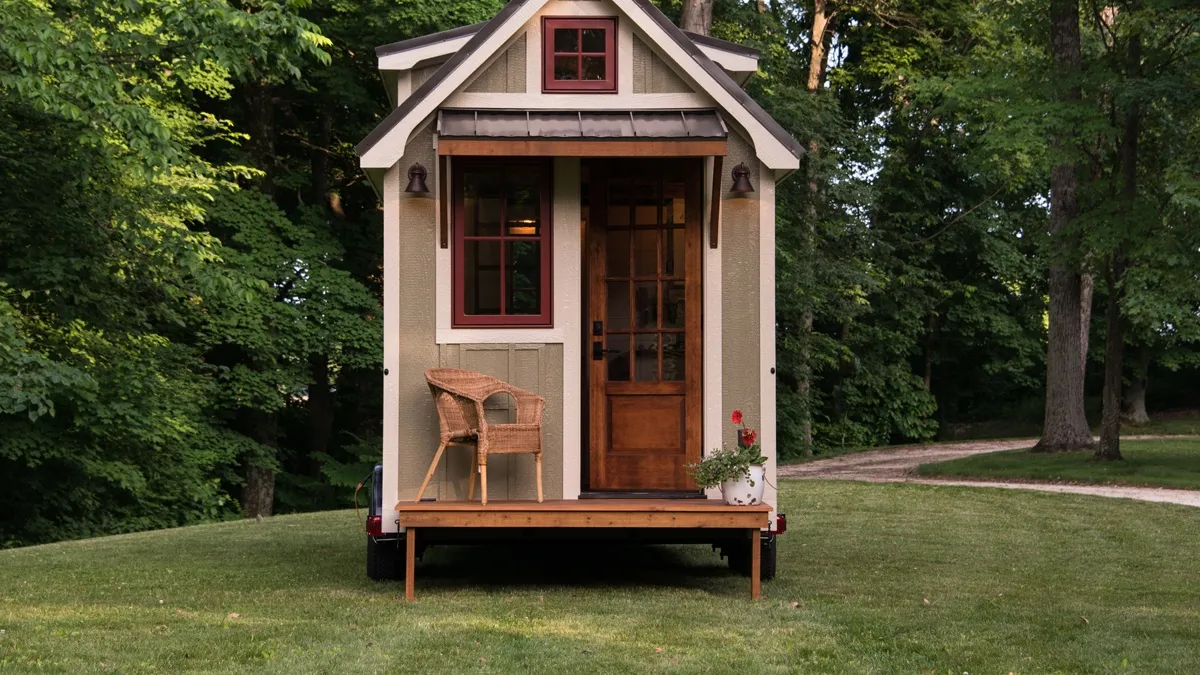Dive Brief:
- In a shot of reality to the tiny house movement, a Portland, OR, couple has been evicted from their 200-square-foot home on wheels because local officials said it violates zoning laws, according to The Oregonian.
- Although the home is located on private property, the city said that because the house sits on a trailer, it is classified as a mobile home and is not permitted to be used as a permanent residence in a single-family zone.
- Claire Teasdale and Bennett Frazier said they are working with the mayor's office to expedite zoning regulations that would allow them to move back into their home. As it stands now, however, they must move their tiny house from its current location by the beginning of next month.
Dive Insight:
Teasdale and Bennett are both employed full-time but told The Oregonian that they cannot save for a standard home in Portland's environment of ever-rising home prices. While the couple said they knew the home was illegal, they thought they might be able to work something out with a "progressive" city like Portland. According to Portland housing advocates, while the city does not allow many forms of alternative housing — tiny houses on wheels, RVs, tents, yurts, domes — it has eased up on accessory dwelling regulations, including a reduction in accessory dwelling unit (ADU) fees of up to $20,000 through July 2018.
More cities are revisiting their accessory dwelling and other zoning rules to allow for more affordable housing. San Francisco recently changed its zoning regulations to permit spaces like unused storage areas and utility closets to be turned into rentable space. City officials said the new law will create an estimated 14,000 additional residential units in a city plagued by rising rents, skyrocketing home prices and an overall shortage of housing.
Washington, DC, also changed its ADU laws to allow small structures to be built in homeowners' backyards in certain outlying areas. Set to take effect next month, city officials are hopeful that the resulting new supply of residential units will ease a housing shortage created by an influx of 1,000 new residents a month.
As far as zoning specific to tiny houses, its touch and go around the country. Some cities have been open to well-planned tiny house communities and are considering changing existing regulations to allow them, while some localities, like Tucson, AZ's Pima County, now permit tiny houses to be built anywhere single-family homes are allowed.












